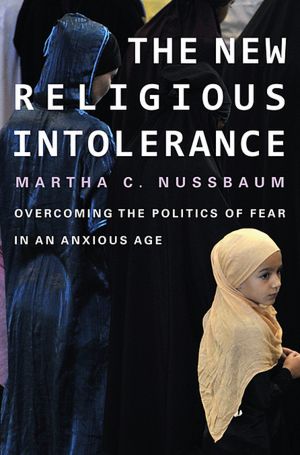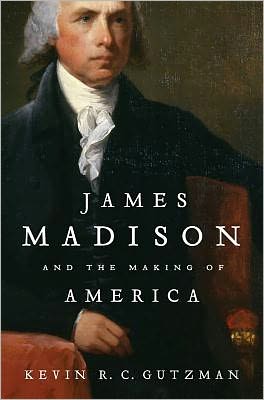[This is the second in a series of posts, which starts
here. The following originally appeared in the appendix to Wisconsin's
Assembly Journal (1858), 2: 378-81, 382-83.]
[T]he Western Emigration Company fixed upon its location at Pike Creek (Kenosha), in June 1835. As soon as news reached Oswego county of the selection of this place immediate preparations began to be made by stock-holders to emigrate to the newly chosen home. About fifteen families, mostly from the town of Hannibal, came on during the summer and fall of 1835. A part of these, however, were not members of the Emigration Company, and on their arrival made claims on lands in the vicinity of Pike Creek, for the purpose of pursuing the business of farming. Eight families, members of the Company, settled at Pike Creek. . . . These, with the members of their households, thirty-two persons in all, comprised the population of Pike Creek during the first winter of its settlement. Their habitations were rude shanties built of logs, and covered with bark. N.R. Allen and John Bullen erected a frame building in the fall of 1835, being the first frame building erected in the place; this building, however, was not completed until the following year…
The early inhabitants of Pike Creek were not indifferent to religious and educational privileges. Through the efforts of Rev. Jason Lothrop, a school was established in December, 1835, and maintained through the winter. A number of families residing on the prairies in the vicinity availed themselves of this opportunity to send their children to school. About this time also meetings for religious worship began to be held occasionally; Rev. Abner Barlow preached the first sermon in the house of Waters Towslee, near the place now known as Beard’s brick-kiln. The inhabitants at this period also organized a Temperance Society, and nearly the entire adult population of the place and the surrounding country became members of it.
The residents at Pike Creek were not, however, permitted to enjoy quiet in their wilderness home; scarcely were the first settlers comfortably lodged in their cabins before they were annoyed by intruders upon their rights. The country at that period was traversed in almost every direction by adventurers and speculators some seeking homes for their families, others intent only on money making. Only a few of the many exciting incidents of those times can now be related. The controversy known as the “Resique war,” which began in August, 1835, and ended in the summer of 1836, was a source of much disturbance. The origin of the Resique war was as follows:
In the month of July 1835, two adventurers, Samuel Resique and John Noble, left Chicago on an expedition to make claims in advantageous locations, with the view of selling them on speculation. They followed the Lake shore north from Chicago until they unexpectedly came upon the settlement of the Emigration Company at Pike Creek. The usual marks, such as furrows made through the woods and openings by plough, indicated that the lands in the vicinity of Pike Creek were already claimed. The prospect for making any speculation here at first appeared rather dubious; still the place had many natural attractions, and they lingered around a couple of days to enjoy the quiet scenery. Washington Island was then in its primitive glory; the groves of young oak upon it had never yet been disturbed by the woodman’s axe. Attracted by its inviting beauty, they passed over to spend an hour in this primeval forest. Resique and Noble were experienced squatters; their quick perceptions soon discovered that if the Island had a reputed claimant, he was not in fact a legal one according to the squatter code; several important particulars had evidently not been complied with. There was no shanty on the land, and no resident squatter on the Island. Resique and Noble at once came to the conclusion to lay claim to the entire Island, and for this purpose immediately proceeded, by the help of a hatchet, to erect an encampment, and otherwise make a proper claim demonstration. Having completed their cabin, Resique returned to Chicago to procure a supply of provisions and other necessaries, while Noble remained to keep possession of the Island.
As soon as it was ascertained by the Pike Creek squatters that the two strangers seriously intended to take possession of the Island, Noble was ordered to leave the premises without delay; this he resolutely refused to do. It was next proposed to eject him forcibly; but the more discreet rejected this proposition, as not being compatible with squatter law. It was finally concluded to proceed against Noble by a sort of technical movement. Accordingly, on the morning of the 25th of July, six men, armed with axes, were seen crossing over in a boat towards the Island. Noble saw this formidable force advance, and was overwhelmed in conjecture as to its probable intent. Upon landing on the Island, instead of offering him any molestation, the men immediately began cutting down trees and brush, and commenced building a fence; they continued their labors, until they entirely enclosed one acre or more, leaving Noble and his domicile in the center thereof…
[Noble held his ground until Resique arrived with more men. The two took down the fence and kept possession of the island with only minor skirmishing until the summer of 1836, “when the contest was renewed with manifestations of hostility which for a time threatened the most serious consequences.” Confronted by a Pike Creek town father, Judge William Bullen, who claimed the land through the Western Emigration Company, the two speculators permitted Bullen to occupy a portion of the island.]
An early settler held a claim on a piece of land, now included within the limits of the third ward of Kenosha. One morning this claimant, while passing over his claim… was overwhelmed with astonishment to find a piece of his land enclosed with a fence, and within the enclosure cultivated corn growing upon the ground. The matter was inexplicable; the possible loss of his claim made him feel extremely uncomfortable. His supposed possession by virtue of his claim had, to all human appearances, passed into the hands of some more successful squatter. The unhappy man immediately notified the Committee of Arbitration of the state of the case, and solicited their attention forthwith to this strange affair. The Arbitrators came, and sure enough, there was the fence, the cultivated ground, and the young corn some four inches in height, apparently growing luxuriantly. The claimant made his statement, alleging that he had within the past week walked over this very place of ground and saw no fence or signs of improvement. The Arbitrators were greatly perplexed, and sat down on a log to deliberate. The case was discussed for some time, but no satisfactory conclusion being arrived at, the conversation lapsed into silence – each seemed involved in his own contemplations as to the instability of human affairs, especially in the matter of claim titles. At length one of the Arbitrators sprang suddenly upon his feet [and] proceeded to take down a portion of the fence so as to remove the bottom rail; this being done, he burst forth into an exultant laugh – the revealment of the mystery now flashed across the minds of all present. The grass, which had been pressed down by the bottom rail, was still fresh and green, demonstrating that the fence had not been built more than twenty-four hours, and disclosing furthermore the probability that the corn had within the like period been transplanted to its present location…. This ingenious contrivance to jump the claim of a Pike Creek squatter was unanimously declared by the Arbitrators to be a piece of outlawry, and the complainant was adjudged to be the rightful possessor of the ground.
Continued





















